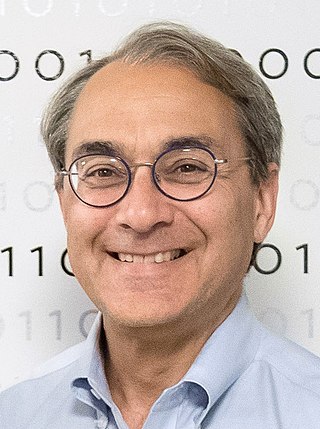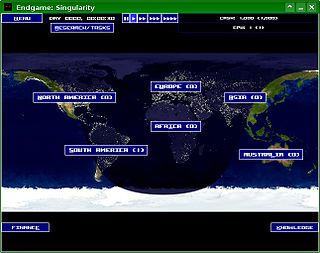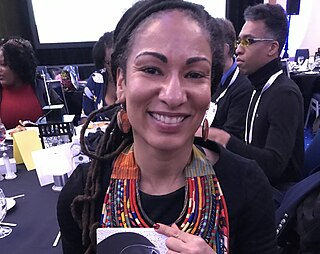Related Research Articles

Nathaniel Dourif Friedman is an American technology executive and investor. He was the chief executive officer (CEO) of GitHub and former Chairman of the GNOME Foundation. Friedman is currently a board member at the Arc Institute and an advisor of Midjourney.
Topcoder is a crowdsourcing company with an open global community of designers, developers, data scientists, and competitive programmers. Topcoder pays community members for their work on the projects and sells community services to corporate, mid-size, and small-business clients. Topcoder also organizes the annual Topcoder Open tournament and a series of smaller regional events.

Alfred Zalmon Spector is an American computer scientist and research manager. He is a visiting scholar in the MIT EECS Department and was previously CTO of Two Sigma Investments. Before that, he was Vice President of Research and Special Initiatives at Google.
General game playing (GGP) is the design of artificial intelligence programs to be able to play more than one game successfully. For many games like chess, computers are programmed to play these games using a specially designed algorithm, which cannot be transferred to another context. For instance, a chess-playing computer program cannot play checkers. General game playing is considered as a necessary milestone on the way to artificial general intelligence.
There are a number of competitions and prizes to promote research in artificial intelligence.

GitHub is a developer platform that allows developers to create, store, manage and share their code. It uses Git software, providing the distributed version control of Git plus access control, bug tracking, software feature requests, task management, continuous integration, and wikis for every project. Headquartered in California, it has been a subsidiary of Microsoft since 2018.

The computer game bot Turing test is a variant of the Turing test, where a human judge viewing and interacting with a virtual world must distinguish between other humans and video game bots, both interacting with the same virtual world. This variant was first proposed in 2008 by Associate Professor Philip Hingston of Edith Cowan University, and implemented through a tournament called the 2K BotPrize.

Kaggle is a data science competition platform and online community of data scientists and machine learning practitioners under Google LLC. Kaggle enables users to find and publish datasets, explore and build models in a web-based data science environment, work with other data scientists and machine learning engineers, and enter competitions to solve data science challenges.

Endgame: Singularity is a free and open source science fiction strategy/simulation game for Linux, Microsoft Windows, and Mac OS X. It was first released in 2005, with version 1.00 released in 2020.

Google DeepMind Technologies Limited is a British-American artificial intelligence research laboratory which serves as a subsidiary of Google. Founded in the UK in 2010, it was acquired by Google in 2014 and merged with Google AI's Google Brain division to become Google DeepMind in April 2023. The company is based in London, with research centres in Canada, France, Germany, and the United States.

Two Sigma Investments, LP is a New York City-based hedge fund that uses a variety of technological methods, including artificial intelligence, machine learning, and distributed computing, for its trading strategies. The firm is run by John Overdeck and David Siegel.
GitLab Inc. is an open-core company that operates GitLab, a DevOps software package that can develop, secure, and operate software. GitLab includes a distributed version control based on Git, including features such as access control, bug tracking, software feature requests, task management, and wikis for every project, as well as snippets. The open-source software project was created by Ukrainian developer Dmytriy Zaporozhets and Dutch developer Sytse Sijbrandij. In 2018, GitLab Inc. was considered to be the first partly-Ukrainian unicorn.
OpenAI is an American artificial intelligence (AI) research organization founded in December 2015 and headquartered in San Francisco. Its mission is to develop "safe and beneficial" artificial general intelligence, which it defines as "highly autonomous systems that outperform humans at most economically valuable work". As a leading organization in the ongoing AI boom, OpenAI has developed several large language models, advanced image generation models, and previously, released open-source models. Its release of ChatGPT has been credited with catalyzing widespread interest in AI.
OpenAI Five is a computer program by OpenAI that plays the five-on-five video game Dota 2. Its first public appearance occurred in 2017, where it was demonstrated in a live one-on-one game against the professional player Dendi, who lost to it. The following year, the system had advanced to the point of performing as a full team of five, and began playing against and showing the capability to defeat professional teams.
David Mark Siegel is an American computer scientist, entrepreneur, and philanthropist. He co-founded Two Sigma, where he currently serves as co-chairman. Siegel has written for Business Insider, The New York Times, Financial Times and similar publications on topics including machine learning, the future of work, and the impact of algorithms used by search and social media companies.
fast.ai is a non-profit research group focused on deep learning and artificial intelligence. It was founded in 2016 by Jeremy Howard and Rachel Thomas with the goal of democratizing deep learning. They do this by providing a massive open online course (MOOC) named "Practical Deep Learning for Coders," which has no other prerequisites except for knowledge of the programming language Python.

The Open Source Security Foundation (OpenSSF) is a cross-industry forum for collaborative improvement of open-source software security. Part of the Linux Foundation, the OpenSSF works on various technical and educational initiatives to improve the security of the open-source software ecosystem.

Diffeo, Inc., is a software company that developed a collaborative intelligence text mining product for defense, intelligence and financial services customers.

Black in AI, formally called the Black in AI Workshop, is a technology research organization and affinity group, founded by computer scientists Timnit Gebru and Rediet Abebe in 2017. It started as a conference workshop, later pivoting into an organization. Black in AI increases the presence and inclusion of Black people in the field of artificial intelligence (AI) by creating space for sharing ideas, fostering collaborations, mentorship, and advocacy.
References
- 1 2 "Cornell Tech - Two Sigma Announces Public Launch of Halite, A.I. Coding Game". Cornell Tech. 2016-11-02. Retrieved 2018-10-04.
- ↑ Segal, Michael (2017-11-30). "Why a Hedge Fund Started a Video Game Competition". Nautilus.
- ↑ Spector, Benjamin; Truell, Michael (2017-10-20). "The Design and Implementation of Modern Online Programming Competitions". arXiv: 1710.07738 [cs.CY].
- ↑ Haskin, Brian (Janzert). "A Quick Rating System Comparison". janzert.com. Retrieved 2018-10-04.
- ↑ "Halite Postmortem · GitBook (Legacy)". GitBook. Retrieved 2018-10-04.
- ↑ "Halite Bot Breakdown". dexgroves.github.io. Archived from the original on 2018-12-24. Retrieved 2018-10-04.
- ↑ "Halite ML Solution". StakerNotes. 2017-02-18. Retrieved 2018-10-04.
- 1 2 Wigglesworth, Robin; Palma, Stefania (29 September 2018). "Funds turn to quant 'World Cup' to lure the best analysts". Financial Times. Retrieved 4 October 2018.
- 1 2 "A Brooklyn high-schooler takes on the world - Technical.ly Brooklyn". Technical.ly Brooklyn. 2018-01-09. Retrieved 2018-10-04.
- ↑ "Test Your AI Coding Skills With This Programming Challenge". MakeUseOf. Retrieved 2018-10-04.
- ↑ Sigma, Two. "Two Sigma Launches Halite II: The Open Source Competition for Experimenting With Future Applications of Artificial Intelligence and Machine Learning". www.prnewswire.com (Press release). Retrieved 2018-10-04.
- ↑ "Season 3 of @twosigma's artificial intelligence programming challenge". GitHub . Retrieved 2019-01-10.
- ↑ "Halite by Two Sigma" . Retrieved 2020-07-11.